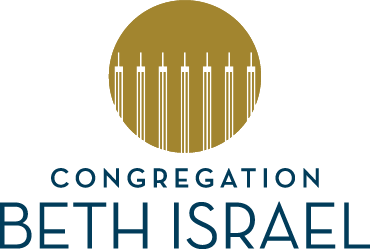We are Jews-by-Obligation

We are Jews-by-Obligation
From the desk of Rabbi David Lyon
Last Friday night, Rabbi Ofek Meir, Director of Leo Baeck Education Center, in Haifa, Israel, was our scholar-in-residence. He spoke about the weekly Torah portion called Yitro, which contains the Ten Commandments. He made insightful remarks that came from traditional commentaries and from his own reading of the text.
Rabb Meir explained that Torah makes no claims that we have a right to much of anything. Instead, he taught, Torah commands us and obligates us to accomplish certain tasks in order to acquire what we need and the world demands. He said, and I paraphrase, “We have no right to a family, but we are obligated to have children for the sake of the Jewish future. We have no right to peace, but we are commanded to seek peace and pursue it. We have no right to a day of rest, but we are commanded to keep the Sabbath.” These obligations are made clear in the Ten Commandments, and among the other 603 commandments in Torah. Even as politicians claim that we have a “right to healthcare,” it’s predicated on the Jewish obligation to save life, called “pikuach nefesh.
Ofek made his point by defining Torah as a system of human obligations that bring us to a place of greater meaning, because the tasks we achieve are connected to God’s covenant with us. In each commandment there exists a moral underpinning that reflects an ideal. Family, peace, and Shabbat are just three of many commandments, mitzvot, that we’re obligated to pursue. They represent a moral beginning to the best life we can know. But, Torah doesn’t teach that these are ours by virtue of faith or life, itself.
Judaism is a religion of action. It isn’t that “idle hands are the devil’s workshop”; rather, it’s that we can’t complete the work that we are obligated to do if we only pray about its meaning or contemplate unfinished work. Our rabbis of old used to teach, “The understanding comes through the doing.” It’s no wonder we sometimes do a mitzvah without knowing why it’s important. Thankfully, Reform Judaism changed the order by urging us to ask why we’re doing what we’re commanded, and to reconcile those commandments with modernity. Rather than being commanded without understanding, we have held fast to a system of understanding that elevates the meaning of the commandments. Sometimes, it seems that we conflict with tradition, but Reform Judaism thrives on its commitment to find meaning through serious education even as we are obligated to do serious work in the world.
When Ofek concluded his remarks to a satisfied congregation, I thanked him for his words and added this thought, namely, that in a nation where we are free to choose from among many positive options without barriers of the past, we are all, in effect, Jews-by-Choice. Rabbi Karff made this point and included it in his memoir, “For This I was Created”. But, I find myself arguing against this idea by maintaining that one who is either born Jewish or chooses Judaism for oneself, is not only a Jew-by-Choice. We also need to think of ourselves as Jews-by-Obligation. I believe that, in this day and age, we need, more than ever, to hold ourselves responsible for fulfilling the obligations we have been given. And, if we can’t find meaning in them, then we should search for meaning and relevance before opting out.
No one said it’s easy being Jewish. But, its inherent claim on our duty to busy ourselves with mitzvot, ritual and ethical, makes the so-called burden of Judaism its greatest value. It invites us to be partners with God; to bear witness to God through mitzvot that are revealed in the inspiration of Torah and its teachings. What do you feel obligated to do this week? What mitzvot do you make a regular part of your life?
